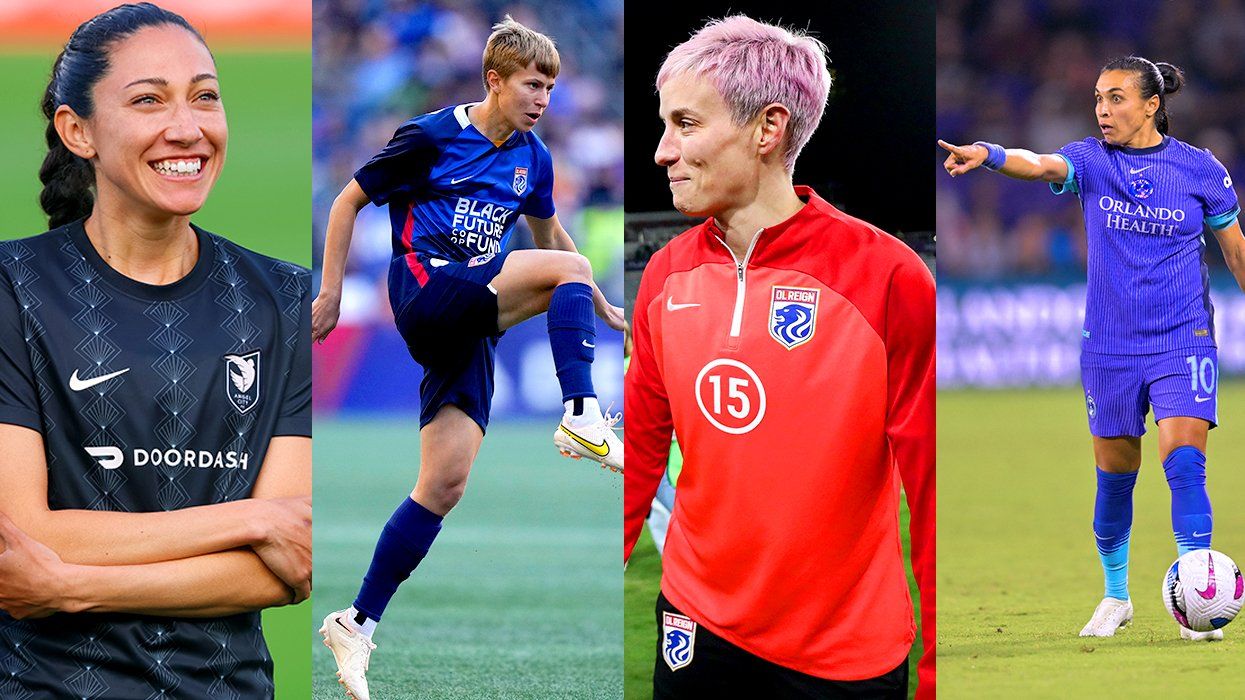We’ve highlighted a lot of great women in our Woman of the Year competition and other lists, but there are many more who kicked ass and made a difference in 2014. Herewith, some of our favorites.
The Women of Marriage Equality
Women are in the forefront of the fight to make marriage equality a nationwide reality, and they’ve won battles even in some very conservative states this year. Mary Bishop and Sharon Baldwin (pictured) sued for marriage rights in Oklahoma a decade ago, and thanks to a succession of favorable court rulings, they were finally able to marry October 6 in Tulsa. “It is a great day to be gay in Oklahoma,” Baldwin said after the ceremony. “It’s an even better day to be married.” To list all the female couples involved in the fight would take up dozens of pages, but we’ll salute a few others, some who’ve won and others who are still awaiting that final victory: Kerry Wilks and Donna DiTrani of Kansas; Amy Sandler and Niki Quasney of Indiana; Jayne Rowse and April DeBoer of Michigan; Teresa and Kate Riley of Wisconsin; Sharene and Lori Watsen of Idaho; and Colleen Condon and Nichols Bleckley of South Carolina. And Iowa has had marriage equality for five years, but this year it produced an especially heartwarming wedding story: Vivian Boyack, 91, and Nonie Dubes, 90, wed after having been a couple for 72 years. They hesitated to make a public statement by having a ceremony, but they were convinced after a caregiver at their retirement community told them the longevity of their relationship was “awesome” and a friend said they changed his mind about LGBT people “My journey in accepting same-sex relationships was formed by these two women,” said friend Jerry Yeast.
Women Opening Up Religion
Rabbi Debra Kolody (pictured), executive director of the LGBT Jewish organization Nehirim, this year convened a first-of-its kind LGBTQI Jewish Clergy Retreat. In an Advocate op-ed, she noted the importance of out LGBT clergy: “As role models who are out, proud, healthy, loving and religious we attest to a meaningful, queer, spirit-led life. Sometimes just being ourselves opens gateways to those who have felt exiled. I am surprised time and again that simply by my leading prayer as an out bisexual woman, people praying with me have decided that they have come home.” Other women campaigned for LGBT acceptance in a variety of faiths. Christian rocker Vicky Beeching came out as lesbian, and Jennifer Knapp, a Christian musician who came out in 2010, published a memoir. And the Roman Catholic Church, which not only frowns on homosexuality but keeps women out of the clergy, continued to be challenged by the forces of inclusion. Colleen Simon lost her job at a Catholic-run food pantry in Kansas City after a magazine article mentioned that she’s married to a woman; she’s fighting back with a lawsuit. Her wife, by the way, is a minister in a more accepting denomination.
Women in the Arts
It was a great year for veteran women authors, along with some newcomers. At the Lambda Literary Awards, Alison Bechdel (pictured) received the Board of Trustees Award for Excellence in Literature, Kate Bornstein received the Pioneer Award, and Nicole Georges won in the new category of Best LGBT Graphic Novel. (Speaking of graphic novels, the musical adaptation of Bechdel’s Fun Home is going to be on Broadway next year.) Emma Donoghue and Sarah Waters published new, well-received novels, Frog Music and The Paying Guests, respectively. Writer-performer Leigh Hendrix, a.k.a. Butchy McDyke, drew the wrath of some conservative lawmakers when her solo show How to Be a Lesbian in 10 Days or Less was scheduled to be part of an LGBT symposium at the University of South Carolina Upstate. The satire-challenged legislators cried “Recruitment!” and the show, which she has performed in many venues, was canceled, but it was South Carolina’s loss. (Below, see an awesome video she made in response to the cancellation.) At a more progressive institution, the University of California, Berkeley, nobody had a problem with Alma Lopez’s exhibit of paintings, “Queer Saints: Holy Violence,” depicting female Catholic saints as butch lesbians and women with masculine energy — and making a statement about violence against women.
Politicians and Pundits
Not only was Maura Healey elected Massachusetts attorney general, but several other lesbians made a mark in the political world, whether in elected office, in appointed positions, or as commentators. Toni Atkins became the first lesbian speaker of the California State Assembly. Sheila Kuehl (pictured), who was the first out gay or lesbian person to serve in that body, left the legislature in 2008 because of term limits, but this year she returned to politics by winning election to the Los Angeles County Board of Supervisors, one of the nation’s most important local governmental bodies, as it serves a population of 10 million. She’s also its first out member. Megan Smith, a former executive with Google and PlanetOut, was appointed the White House’s chief technology officer. Judith Levy and Staci Yandle were confirmed as federal judges, and Maite Oronoz Rodríguez became a justice of the Puerto Rico Supreme Court. In the world of punditry, Rachel Maddow continued to command a devoted audience, but she’s far from the only game in town, as CNN and Daily Beast commentator Sally Kohn gained popularity — and was named by Mediaite as a rising star of cable news.
Love Blossoms Through Activism
Police killings of unarmed black men in several cities focused public debate on police power, race, and class. Ferguson, Mo., a suburb of St. Louis, was the site of numerous protests after the death of Michael Brown. Two of the demonstrators, Alexis Templeton and Brittany Ferrell (pictured), met for the first time at one of the actions, although both were Ferguson residents and University of Missouri-St. Louis students. Soon they were in love, which they proclaimed to the public when Templeton proposed to Ferrell at St. Louis City Hall. They then obtained a marriage license — the city of St. Louis is the only jurisdiction in Missouri that recognizes same-sex marriage — and planned a ceremony. Seeing them fall in love was “like watching poetry write itself,” said friend James Spann, adding that their dedication to social justice “gives me more than hope.” The two women and another friend, Ashley Yates, founded a group called Millennial Activists United, and they’ll continue to be dedicated to the fight.
Everybody Must Get Stoned?
James David Manning, pastor of ATLAH World Missionary Church in New York City’s Harlem neighborhood, has gained notoriety as one of the nation’s most homophobic and most bizarre preachers. He’s claimed that Starbucks lattes are flavored with semen from “sodomites” and that President Obama has released “homo demons” on black men. Early this year, his church displayed a sign reading “Jesus Would Stone Homos.” Jennifer Louise Lopez (pictured) decided to call the church’s bluff, showing up on its doorstep and saying she was a lesbian and there for her stoning. Turned out there were no stones on hand. A few days later, about 50 LGBT activists demonstrated at the church. Lopez addressed the crowd, saying Manning “is a very hateful and dangerous man.”
Making a Mockery of Bigotry
Long before Manning became well-known, the infamous Fred Phelps and his congregation at Westboro Baptist Church in Kansas wrote the book on antigay bigotry. Phelps and the members of his “church,” mostly his relatives, initially made news by displaying signs reading “God Hates Fags” at the funerals of people who’d died of AIDS, then expanded to picketing services for hate-crimes victims such as Matthew Shepard (with slogans such as “Fag Matt in Hell”) and funerals of fallen soldiers, claiming the military deaths were God’s punishment for the U.S. being too tolerant of LGBT people. Phelps died this year, but his followers carry on. This year they targeted the band Panic! at the Disco because of lead singer Brendan Urie’s acknowledgement of his fluid sexuality. The Westboro types wrote a homophobic parody of one of the band’s songs, so Scottish lesbian teen Rebecca Anderson (pictured), a big Panic! fan, responded with her own parody, calling on the church to “stop spreading homophobic hatred.” Watch below.
































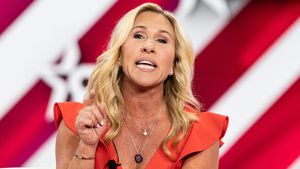



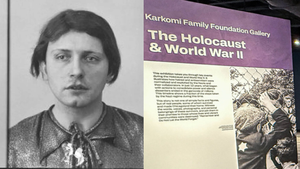

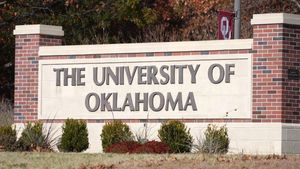




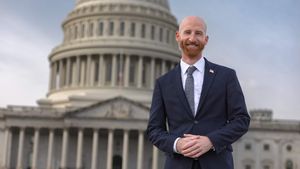


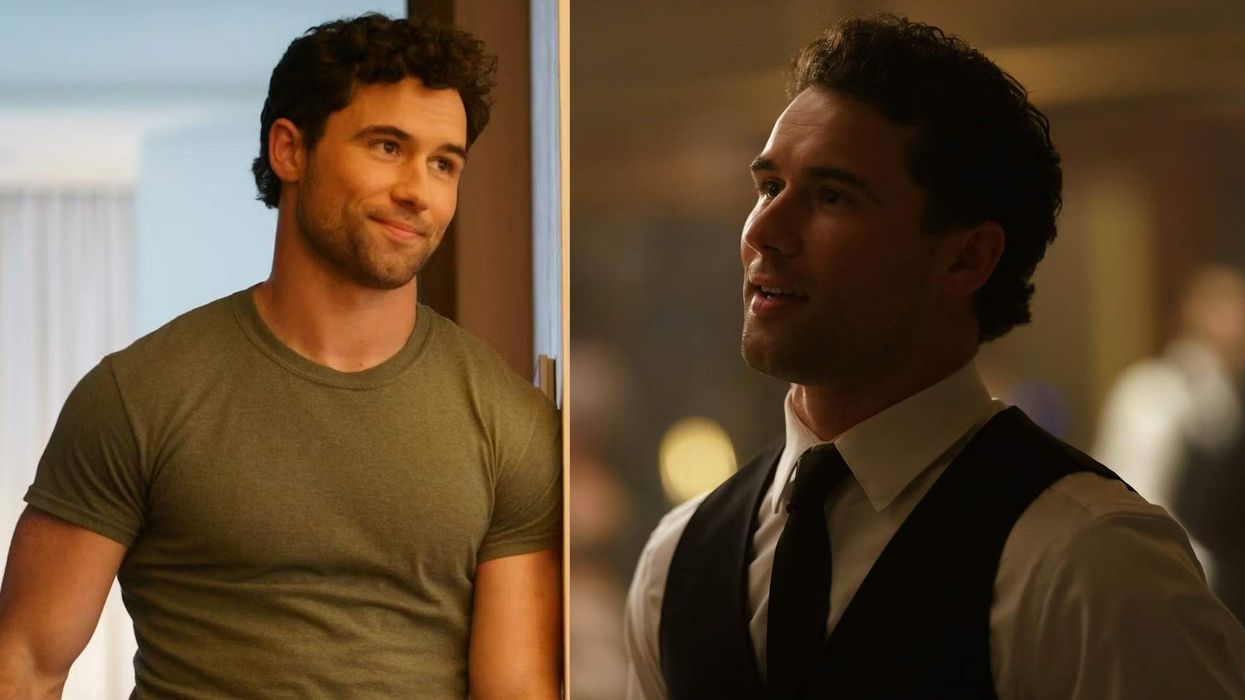

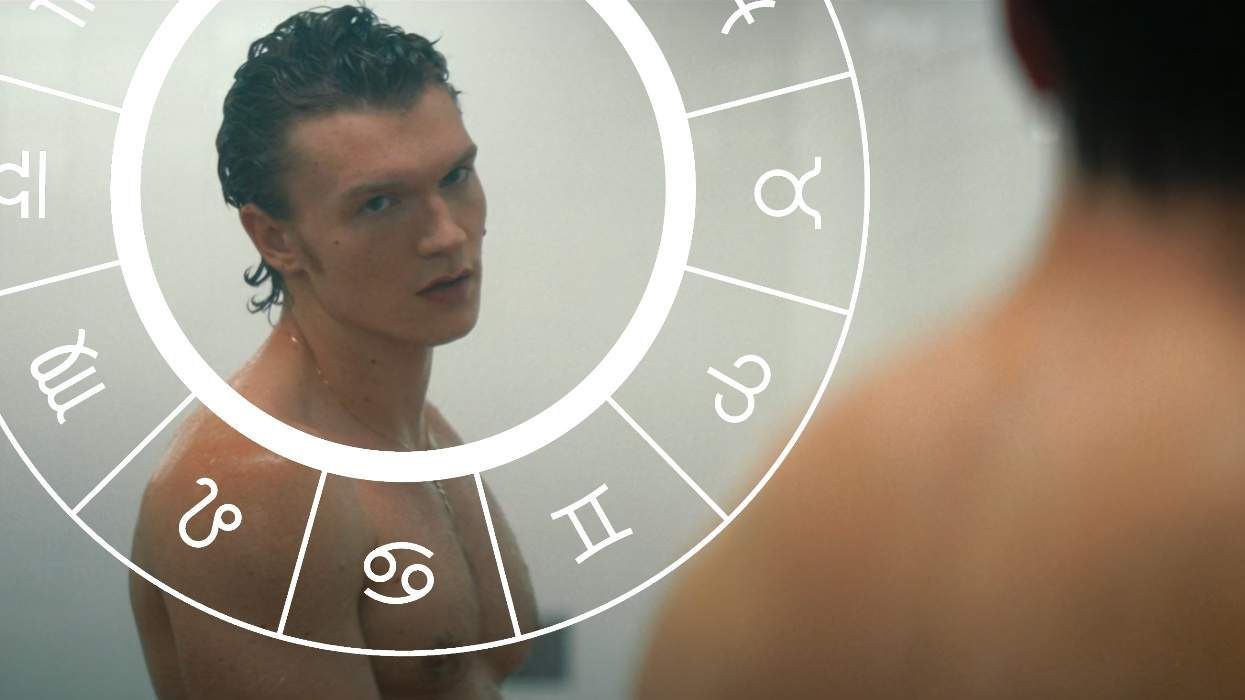

































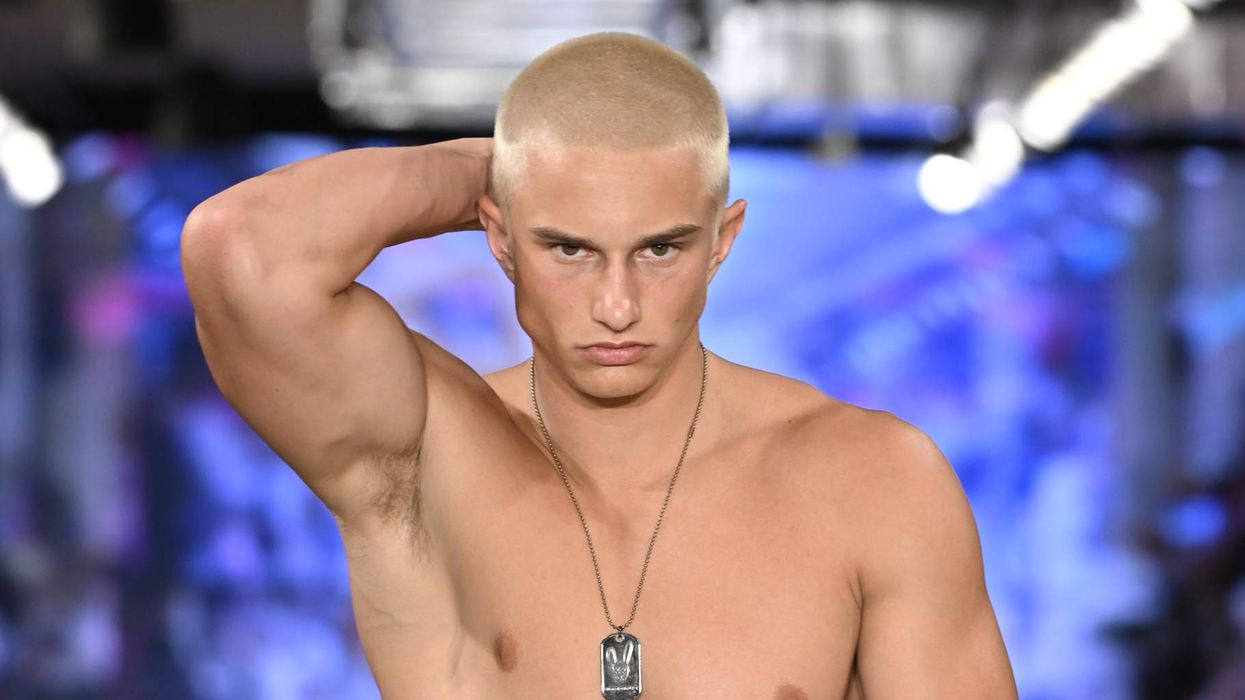

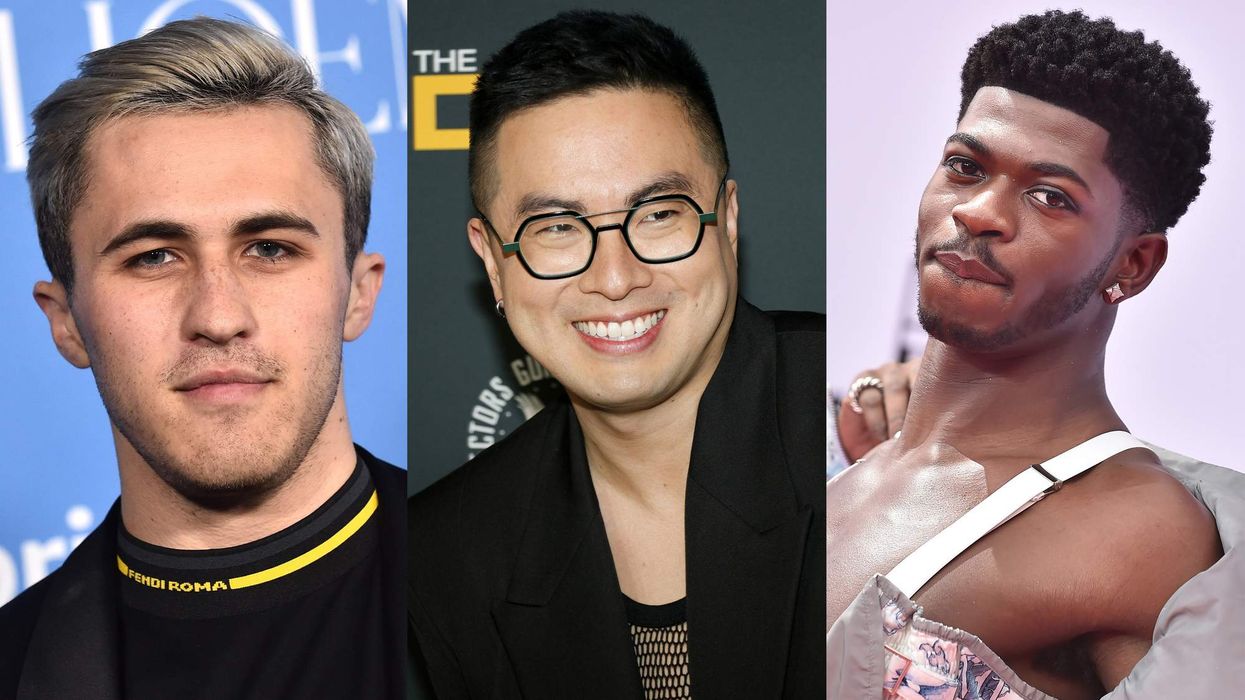


 Cindy Ord/Getty Images
Cindy Ord/Getty Images
























